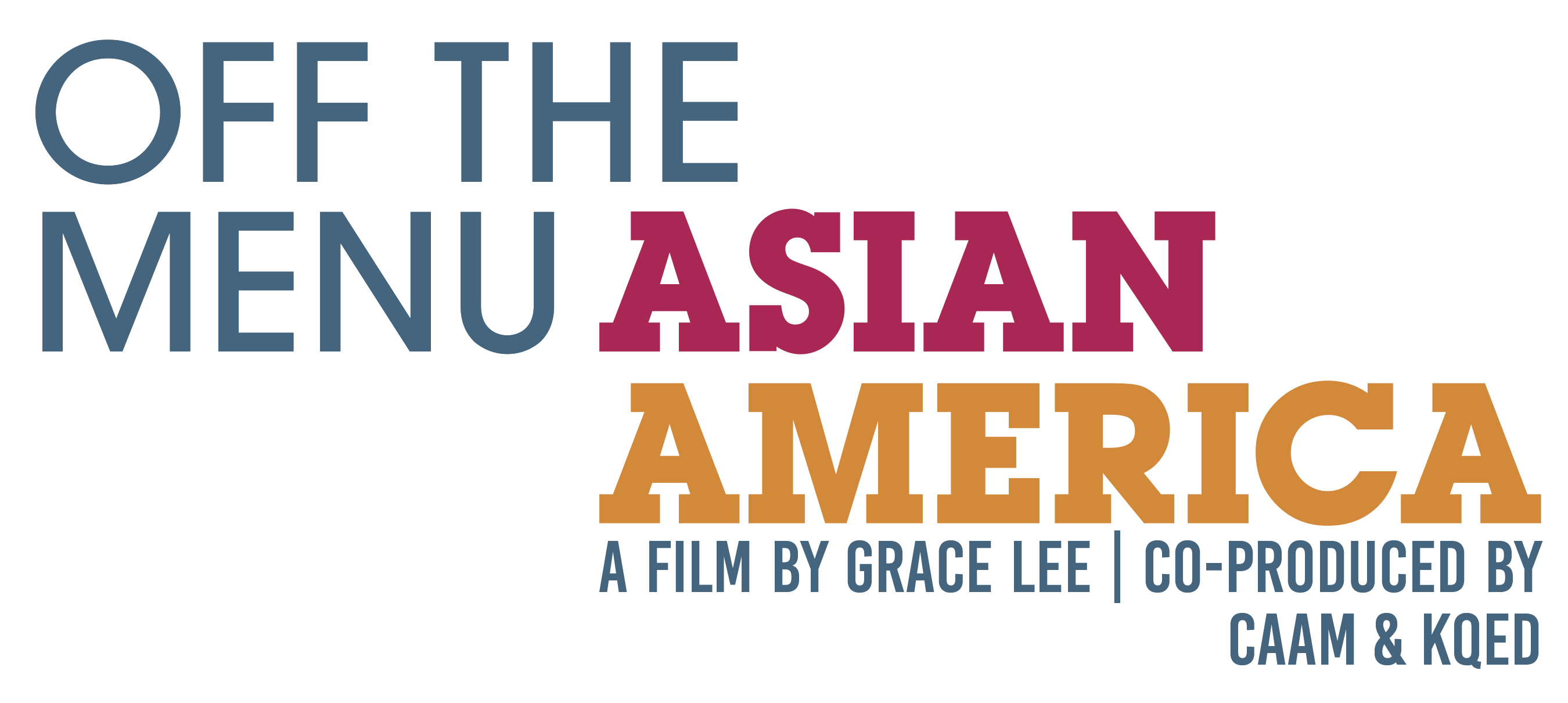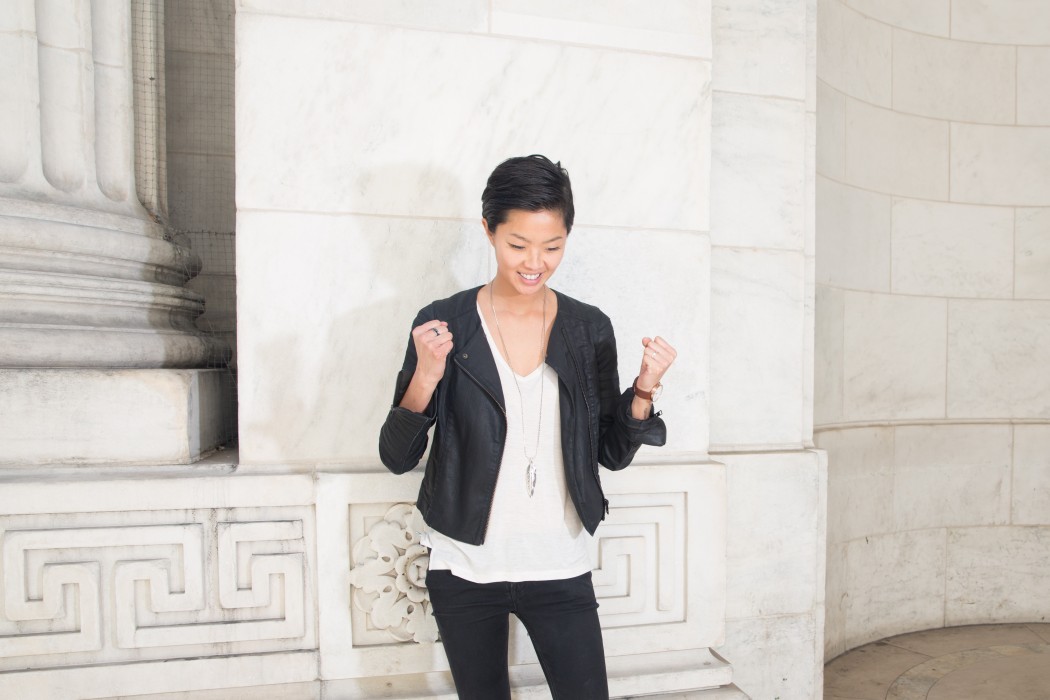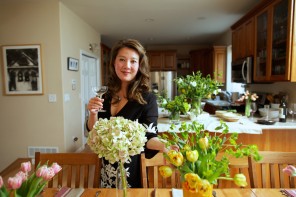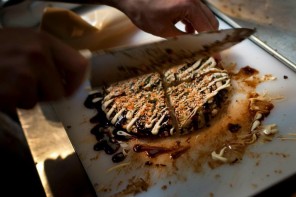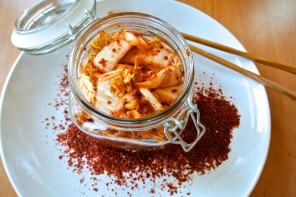Kristen Kish’s story from Seoul to celebrity chef has been one of talent and grit, with plenty of burn scars to prove it. Born in South Korea and adopted by an American family, she grew up in Kentwood, Michigan and worked as a model throughout high school. After a brief stint of going for an economics degree, she attended culinary school at Le Cordon Bleu in Chicago and later worked under Boston powerhouse Barbara Lynch at Stir. In 2012 she became only the second woman to win on Bravo’s Top Chef and until right before our chat, she was chef de cuisine at another Lynch institution, Menton. If she looks familiar, you may have seen her recently starring in ads for Rembrandt, alongside rapper Bun B and Marvel editor, Sama Amanat. All this, and she’s only 31.
—Diana Emiko Tsuchida
Describe your childhood. Is there anything that set the stage for making a life around food?
Yeah, that’s very easy, I was born in Seoul and then I was adopted at four months old and adopted into a white family in Michigan. I grew up in a household where they cooked us family dinners, but it wasn’t gourmet food by any means. At every point in my life, starting at 5, I picked up my first knife in my parents’ knife block (luckily they were very dull) and I started watching Great Chefs of the World. It was traditionally French chefs and it was being dubbed over by this woman with an English accent and something sparked my interest. That’s all I wanted to do when I got home from school. And so I would listen to it in the background while my parents had the television on in the kitchen and I would pretend to cut and pretend that I was that person. I had no concept of flavor, I didn’t know what good food was, I just liked the process of it. Literally when I picked up my knife, I just knew how to use it and I don’t know why. I would make up these weird stories in my head, you know maybe my biological mother or father was a chef or like, it’s something in my DNA. I’m not sure, it just felt natural.
Were your parents good cooks?
Home cooks. My mother would read magazines and she’d make casseroles, it was a very midwestern lifestyle that I had.
What was your parents response to becoming a chef?
I was an average student. I nearly failed out of math, it’s just not in my being. So going through school I excelled the most in creative writing, art class, music. I played a lot of instruments. I went into International Business in Economics because I thought it would give me the life that I wanted. But my mom saw how unhappy I was and she said, “Kristen you love to cook, you love Chicago. Go do it.” She’s the one that pushed me into culinary school.
What is your experience learning in high end French cuisine?
You look at me and go, yes I’m Asian and yes, I’m a chef so one could only assume I’d go that route to cook Asian food. But again I grew up in a white household in middle America with television programs that weren’t focused on Asian food. There’s something in my being. I’m very precise, perfectionist if you will, and for me that translated more into French cuisine. And perhaps it was the television show “Great Chefs of the World.” Not to say that Korean food is not refined, it is. Asian food in general is very refined and classic and traditional. But from what I saw, the French side of things were more along those lines and it made me think a lot more. It opens up this whole creative world and hopefully when I go to Korea, I can mesh them but again, I don’t know anything about that food.
Did your parents ever want to reconnect you with a Korean identity or sense of heritage?
During summer vacations or spring break, we’d go to Korean festivals and my mother was always very good about bringing me to these things and introducing me to the culture the best way she knew how. She would sprinkle in these influences of Korean. She got me Korean dresses and introduced me to Korean foreign exchange students and other Korean adoptees. You know, she did really well making sure I knew where I came from and she was very open about the adoption. I never really knew what adopted meant because for me, this was just my family. So unless somebody pointed it out, I didn’t know what adopted meant until later on in my life. My brother was this 6’2, all American guy, very handsome. The best older brother I could ever ask for. My mom showed me a picture where he would feed me and hold me. It was by far the most loving childhood growing up.
If you went back to Korea, what do you hope to find?
This is a question that I’ve given a lot of thought. So when I was younger, maybe 16 or 17, I was like “Yeah I would like to go back, it’d be cool to meet my birth mother.” But also I didn’t put a lot of eggs in that basket because there’s not a lot on record. On that same side as I got older, I realized, who am I to do that? Okay, this woman had to give me up for adoption for a reason, she left me at the clinic where I was born for a reason. Who am I to ruin her life essentially and enter myself back into it because if she wanted to, she would have left something. In that sense I kind of let go of that idea. On the flip side, I want to see what she looks like, I want to see the two people that made me because I feel like it’s something that people take for granted. Those are the things I miss (knowing where traits came from). Around 19, I reached out to the orphanage where I stayed and I was okay with that. And so after 10 years it’s just gone up and down. What I’ve come to realize is, I will go back, I hope to go back very soon. But I want to go back for me and almost for a selfish reason. I want to see the clinic where I was born but I have no desire to meet my birth mother. Why? I have a fantastic life, I have an amazing family, I don’t need that to feel fulfilled. But what I do need is to see it, I need to feel that culture and that environment and that’s going to be extraordinarily emotional. There’s something to be said about just being in that environment. What do I want to do when I go? I want to experience Seoul in all its glory, I want to be a tourist. But I want to go into the field, I want to get down and dirty and without getting into specifics, I want to do what my life would have been had I not been adopted and so assuming my mother couldn’t take care of me, she was probably on the poorer side and not living in great conditions and I want to do that. And so I want to see what my life would have been. Explore good food, this is one thing I have to do: I want to go to this orphanage and hold a child that’s waiting to be adopted. To be able to give that to a child, that I could only assume was given to me when I was that age, would be incredible and make some type of impact. I think all those experiences will help me become a better person and in turn become a better chef.
What is your opinion on the state of women chefs right now?
I think the conversation started with that Time article and that got the conversation going. Perhaps it’s because I’m naive; I am aware that we’re a minority and that women in the chef role and running a kitchen is very rare. I faced a little bit of discrimination but nothing that I couldn’t overcome. Like anyone walking into a new kitchen, you have to prove yourself, male or female, it doesn’t matter. It’s unfortunate, I wish there were more women in these powerful chef roles or maybe there are but they’re not given the credit. That being said, as chefs we don’t do it for that, at least I don’t. I don’t do it for the fame and the glory. That’s okay if I’m not in that magazine. I think just as a general hospitality industry, everyone needs to stick together, it doesn’t matter what your gender is. I think it’s part of my generation. I think 20 years ago, there were female chefs that have more fire underneath them about this topic. But now, the restaurant is such a melting pot of different people anyway. You could face discrimination whether you’re 21 and running a kitchen or you’re 45 and now you’re running this kitchen–you’re too old, you’re too young, you don’t look like a chef. Everyone’s going to find a weird spectrum of where to criticize you. But at the end of the day if you do something great, you cook good food, people come and like your establishment, that’s all that matters.
Do you think people are just not ready to see a female chef on the cover of Time?
The majority of them are wonderful people and wonderful mentors. But then you look at Cherry Bombe and no one’s up in arms because they don’t feature any men. The Time article picked out 5 male chefs but they are also really fantastic. The one thing I did not agree with in the article was how they talked about women chefs and how this idea of “why they aren’t around.” Now people are talking about women in the industry so that article, essentially got this conversation going where now these women are in the spotlight. So we got something great out of it too. At the end of the day we’re all chefs. I care, I do, I’m passionate about learning from these women because I think there is a distinct difference so I want to be that somebody for a young woman in culinary school, too. But at the end of the day, we’re all chefs, we do what we love.
How would you run and structure your kitchen?
I’m not going to hire a woman just because you’re a woman, I’m not going to hire a man just because you’re a man, I’m going to hire the best candidate. Whatever it is my restaurant needs that’s what I’m going to look for. I like to think I’m tough and I will make it known when I’m upset but I will never bring you down. I think that’s this old school of thought–you yell at people, you throw the pots and pans, I don’t do that. And nor did my mentor and great friend, Barbara. It’s just not in my being. I love women in the kitchen but I also just want the greatest cooks, it doesn’t matter the gender of that applicant. I hope to inspire and lead and to teach and to learn and to work as a team and create this bond and camaraderie. The greater good of why you’re there is to put food in front of the guest at the end of the day. I think the best way to run a kitchen is to hire like-minded people, who support you and in turn you support them. You need the team to be on the same page.
What do you want to be remembered for?
On a personal level, I want to be remembered for being a good person. On a chef side, I want to be remembered for being a great chef and having a great restaurant. And then when I walk away from it, I want to feel personal satisfaction. I’m not going for the awards or the accolades, I just want to feel fulfilled, I want to be happy.
And are you happy?
I am very happy, I’m constantly searching for more. I am never going to leave this earth feeling like I accomplished it all because there’s always more and that’s okay because that’s what drives me. Personally, extraordinarily happy. Professionally, I’m very excited to see what else is out there. Menton was fantastic, but it came to a point where it just wasn’t the right fit. Being surrounded by Barbara all the time, she created these restaurants that are very specific things of what she always dreamed of. I want to find that for myself. That’s the reason I left, I want to find that satisfaction that she found for herself and whatever way that translates to me and she was extraordinarily supportive of that. When I first thought about leaving, I had a panic attack. I went right to her as a friend first and she gave me a friend answer and she said “Kristen, go find it. Leave and go find it.” She’ll send me text messages and ask me how I’m doing. And I want to be that for somebody else.
+ + +
 This story is a part of Off the Menu: Asian America, a multimedia project between the Center for Asian American Media and KQED, featuring a one-hour PBS primetime special by award-winning filmmaker Grace Lee (American Revolutionary: The Evolution of Grace Lee Boggs), original stories and web content.
This story is a part of Off the Menu: Asian America, a multimedia project between the Center for Asian American Media and KQED, featuring a one-hour PBS primetime special by award-winning filmmaker Grace Lee (American Revolutionary: The Evolution of Grace Lee Boggs), original stories and web content.
